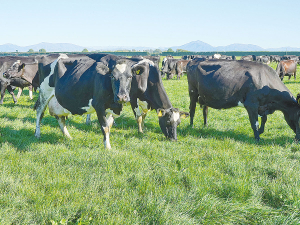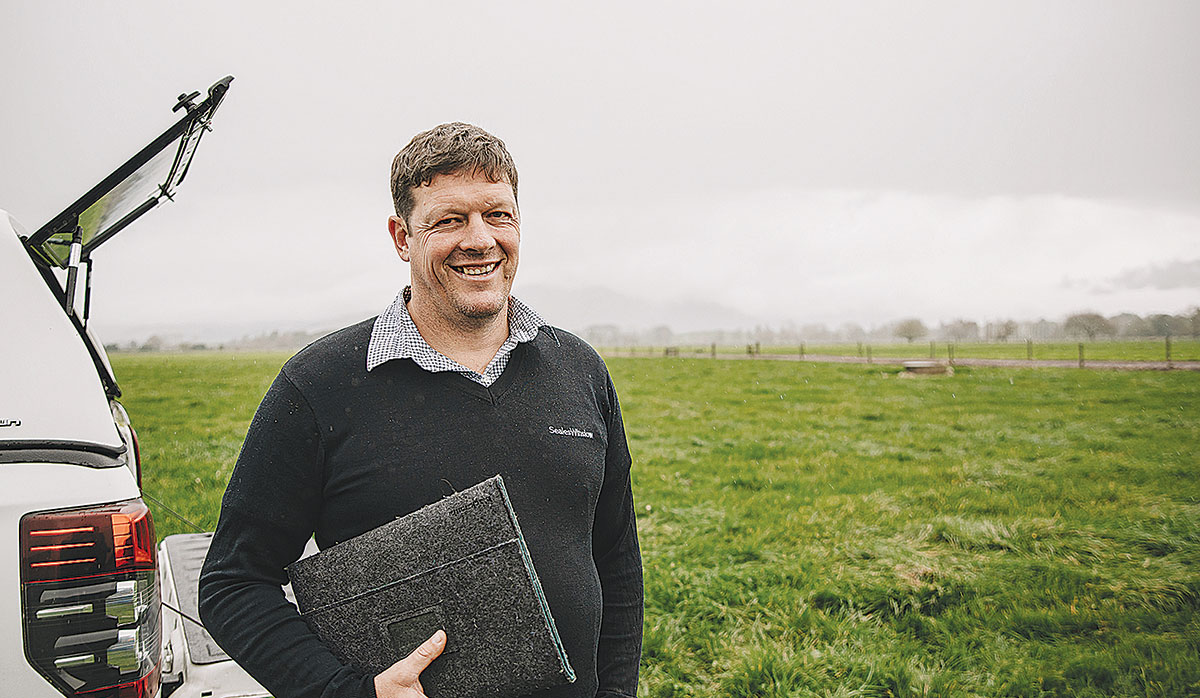Turning data into dollars
If growing more feed at home adds up to $428 profit per tonne of dry matter to your bottom line, wouldn’t it be good to have a ryegrass that gets you there quicker?
 Summer grass can become fibrous, so balancing the diet with more digestible feed is key to maintaining milk production.
Summer grass can become fibrous, so balancing the diet with more digestible feed is key to maintaining milk production.
Waikato dairy farmers are well-placed heading into the peak of summer, thanks to favourable growing conditions late last year that resulted in abundant onfarm feed reserves.
However, with warmer, more humid days ahead, SealesWinslow national sales manager Ryan Scholes advises farmers to focus on balancing cow diets and making strategic feeding decisions to keep cows in milk and maximise the strong forecast payout.
“Many farmers have more surplus feed, like grass silage, than they’ve had in recent years due to excellent pre-Christmas growth,” he says. “While this puts them in a good position, it’s important to remember that summer grass can become fibrous, so balancing the diet with more digestible feed is key to maintaining milk production.”
The importance of balanced diets
Farmers feeding fibrous grass silage or older pasture should consider supplementing with a low NDF (neutral detergent fibre) feed that is easier to digest and promotes efficient rumen function. According to Scholes, a feed with a good mix of protein and starch is critical.
Feeding fibrous silage alongside feed that doesn’t digest quickly, it can limit rumen efficiency, he says. “Instead, opt for a feed that ferments well in the rumen, has high metabolic energy (ME), and is compact and concentrated for easy consumption.”
This advice becomes even more critical as the hotter, more humid months approach.
“To maintain rumen efficiency and support milk production, every bite of feed needs to count.”
Managing heat and humidity
With the heat and humidity rising, cows expend significant energy trying to stay cool, often leading to reduced feed intake. Providing compact, high-ME feeds that cows can consume easily and efficiently during these challenging conditions is essential.
 |
|---|
|
SealesWinslow national sales manager Ryan Scholes advises farmers to focus on balancing cow diets. |
“When cows eat less in the heat, you need feeds that deliver high energy in a small package,” he says.
Transitioning to OAD
Many farmers are also starting to think about transitioning to once-a-day (OAD) milking. This change can help preserve body condition and reduce stress on cows during the hot, humid months. However, Scholes cautions farmers to ensure there’s suitable feed available in the shed to maintain milk production.
“Having something easily digestible and high in energy is critical for cows on OAD milking. It’s about keeping them productive while preserving their condition for the next season,” he says.
Keeping cows in milk longer
With no more advance payments for Fonterra farmers, Scholes advises them to keep their cows in milk as long as possible to maintain a steady income stream while preparing for the next season.
“Keeping cows in milk longer ensures you’re getting the best return on this season’s payout while maintaining their condition. It’s a balancing act between getting production now and setting yourself up for a strong start to the next season.”
For more tailored advice on balancing cow diets and maximising milk production, visit the SealesWinslow team on Row C: Site 102 at the Dairy Expo.
Controls on the movement of fruit and vegetables in the Auckland suburb of Mt Roskill have been lifted.
Fonterra farmer shareholders and unit holders are in line for another payment in April.
Farmers are being encouraged to take a closer look at the refrigerants running inside their on-farm systems, as international and domestic pressure continues to build on high global warming potential (GWP) 400-series refrigerants.
As expected, Fonterra has lifted its 2025-26 forecast farmgate milk price mid-point to $9.50/kgMS.
Bovonic says a return on investment study has found its automated mastitis detection technology, QuadSense, is delivering financial, labour, and animal-health benefits on New Zealand dairy farms worth an estimated $29,547 per season.
Pāmu has welcomed ten new apprentices into its 2026 intake, marking the second year of a scheme designed to equip the next generation of farmers with the skills, knowledge, and experience needed for a thriving career in agriculture.
OPINION: Staying with politics, with less than nine months to go before the general elections, there’s confusion in the Labour…
OPINION: Winston Peters' tirade against the free trade deal stitched with India may not be all political posturing by the…